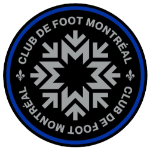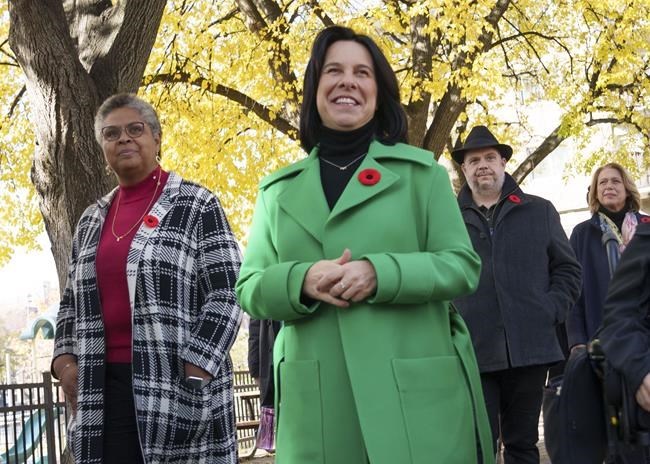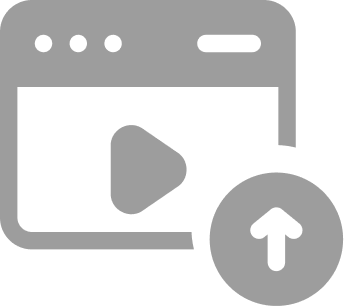
Breadcrumb Trail LinksOpinion Local News Columnists I am the CAQ government's nightmare, it seems - an import that sometimes speaks English on Montreal streets.
And French.
And some Inuktitut.
Join the conversationProtesters rally against the CAQ government's planned tuition hikes.
"I am exactly the kind of out-of-province person whose university recruitment will become much more unlikely," writes Richard Budgell, an assistant professor in the department of family medicine at McGill University.
Photo by Dave Sidaway /MONTREAL GAZETTE / POSTMEDIA NETWORK Article content I have a dirty secret: I was an OOPQUS (Out-of-Province-Quebec-University-Student).
I am the CAQ government's nightmare, it seems - an import that sometimes speaks English on Montreal streets.
And French.
And a bit of Spanish.
And some Inuktitut words.
Article contentAnd I am exactly the kind of out-of-province person whose university recruitment will become much more unlikely with the proposed tuition rate increases.
Story continues below THIS CONTENT IS RESERVED FOR SUBSCRIBERS ONLYAccess articles from across Canada with one account.
Share your thoughts and join the conversation in the comments.
Enjoy additional articles per month.
Get email updates from your favourite authors.
Article contentI came to Quebec from my home in Labrador in the late 1970s to attend the Universite du Quebec a Trois-Rivieres.
I had been learning French since my childhood, in Labrador City, Newfoundland and Labrador.
Labrador City is a scant 25 kilometres from the Quebec border.
In my childhood, its population was probably more than one-quarter Quebec francophone.
I knew nothing about Trois-Rivieres, except that I had a distant ancestor from there, and that it would be very French-speaking - which is what I wanted.
I had come from doing a semester of immersion at the French language institute of Memorial University, in the French territory of St-Pierre-et-Miquelon.
I didn't see Quebec as being foreign; different, sure, but not impossibly strange.
It was kind of challenging, but also fascinating: I met Quebecers from the Mauricie and coeur du Quebec; discovered the music of Beau Dommage; encountered poutine; went to the Carnaval de Quebec.
And fell completely in love, with Quebec.
Speaking French felt like an intrinsic part of me.
There wasn't a hint of an issue in relation to tuition.
All post-secondary undergraduate tuition in Canada seemed affordable then.
Had there been big price differentials for out-of-province students, it could have been a problem.
I worked summer jobs, and my parents were very supportive of university education, but we were a working-class family where money was not limitless.
Story continues below Article contentI began self-identifying as Indigenous as a young adult.
In 2005, when the Labrador Inuit and Canadian governments signed the final land claims agreement, I became an Inuk beneficiary.
The Inuit population in Canada is increasingly southern and urban: Almost a quarter of the 70,000 Inuit in Canada live outside of Inuit Nunangat, the Arctic homeland.
That more urbanized population has somewhat easier access to post-secondary education.
To my occasional regret, I didn't stay in Quebec.
I ended up living in Ottawa, with a career in the federal government - frequently working in Gatineau - until I finally moved to a job in Montreal in 2015, where I worked primarily in French.
In my latest career, at McGill, I am part of a small but growing group of Indigenous faculty.
There are now two Inuit faculty members at McGill, and increasing numbers of First Nations and Metis.
Indigenous student populations are small, but growing: McGill sources estimate around 350; Concordia, about 250.
Many of those students are from out-of-province, drawn to Montreal by the same attractions as other students: the quality of academic programs; a diverse student body; and the vibrancy of the city.
Story continues below Article contentI teach academic-stream students in family medicine, and lecture in a range of other departments, where the student composition is often international and from Quebec and the rest of Canada.
I also teach medical students, of whom a majority are Quebecers from a wide range of ethnic and linguistic backgrounds.
I am teaching course material that I developed, on Inuit health, that is apparently the first of its kind in Canada.
Many First Nations and Inuit students are able to receive some assistance for post-secondary education costs, but that funding is finite.
Funders could prefer cheaper alternatives if Quebec universities become radically more expensive for out-of-province students.
For millennia, Indigenous Peoples have moved around a land mass that didn't have boundaries.
It is incomprehensible to see actions like those of the Legault government that apparently wants to heighten boundaries.
I belong here, and am making a contribution here.
This is my territory - where I chose to live.
I have been immensely enriched by my deep connection to Quebec.
Other Indigenous people should continue to have the same opportunity.
Richard Budgell is assistant professor in the department of family medicine at McGill University.
Related Stories Quebec tuition: English universities make 'historic proposal' to Legault Allison Hanes: Many English university students want to learn more French Opinion: Legault's tuition hikes harm Quebec's long-term interests Opinion: Anglo institutions are part of Quebec, tooStory continues below Article content Article content Share this article in your social networkPostmedia is committed to maintaining a lively but civil forum for discussion and encourage all readers to share their views on our articles.
Comments may take up to an hour for moderation before appearing on the site.
We ask you to keep your comments relevant and respectful.
We have enabled email notifications-you will now receive an email if you receive a reply to your comment, there is an update to a comment thread you follow or if a user you follow comments.
Visit our Community Guidelines for more information and details on how to adjust your email settings.
Join the Conversation Latest National Stories This Week in Flyers.





